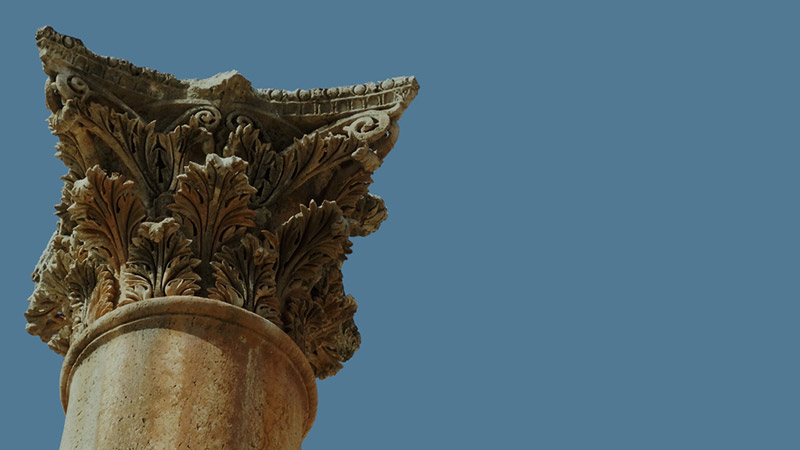Updating...
Showing 12 of 37

Herod's FamilyHerod lay dying in his opulent palace in Jericho. He had been seriously ill for a long time. From the description in Josephus' writings, Herod had gangrene, severe itching, convulsions, and ulcers. His feet were covered with tumors, ...
MORE
In Herod's FootstepsHerod lay dying in his opulent palace in Jericho. He had been seriously ill for a long time. From the description in Josephus' writings, Herod had gangrene, severe itching, convulsions, and ulcers. His feet were covered with tu...
MORE
Rabbi and TalmidimThe people of Galilee were the most religious Jews in the world in the time of Jesus. This is quite contrary to the common view that the Galileans were simple, uneducated peasants from an isolated area. This perspective is probab...
MORE
Only recently have these scattered remains been identified as Herod's palace. In the center was a freshwater pool now largely filled with silt and stones from the building itself. In the center is the podium believed to be the base for a large sta...
MORE
The Revolt Begins In AD 66, a Gentile in Caesarea offered a pagan sacrifice next to the synagogue's entrance on the Sabbath. Jewish citizens protested, so Jerusalem authorities ended all foreign sacrifices in the temple, including those to Caesar....
MORE
A large piece of marble frieze like this one was pulled from the Mediterranean by archaeologists. The beauty of the design is still evident after nearly two millennia. Since Israel has no natural marble, it had to be shipped from elsewhere, often ...
MORE
This high mountain range reaches more than 9,000 feet above sea level, is 28 miles in length, and is more than 10 miles wide. It is covered with snow more than eight months a year. Water from melting snow is the main source of water for the Jordan...
MORE
The second commandment forbade making images. Hellenistic culture glorified the human form. These two world views clashed in the days of Herod as he tried (and largely succeeded) to mold his kingdom into a Hellenistic one. He imported great number...
MORE
This stream is one of several that run out of the cliff at Caesarea Philippi. Originally, the springs ran from the cave known as the Grotto of Pan. The presence of a religious cult here is probably due to these springs of fresh water.Peter's confe...
MORE
These niches originally held statues of the pagan gods worshipped at Caesarea Philippi. The largest is actually an artificial cave that leads to a niche in the cliff itself. This niche apparently held a statue of Pan. Above it is another niche wit...
MORE
Greek, hippus ("horse") and dramas ("course"). Referred to a horse racing course or circus. Herod built hippodromes in Caesarea, Jericho, and Jerusalem, where horse races, chariot races, and Olympic-style games were held as par...
MORE
The great king Herod imported marble from Italy to build his glorious city of Caesarea. Many of Herod's cities and buildings were covered with this stone. He built these magnificent structures so people would remember him and honor him as a great ...
MORE